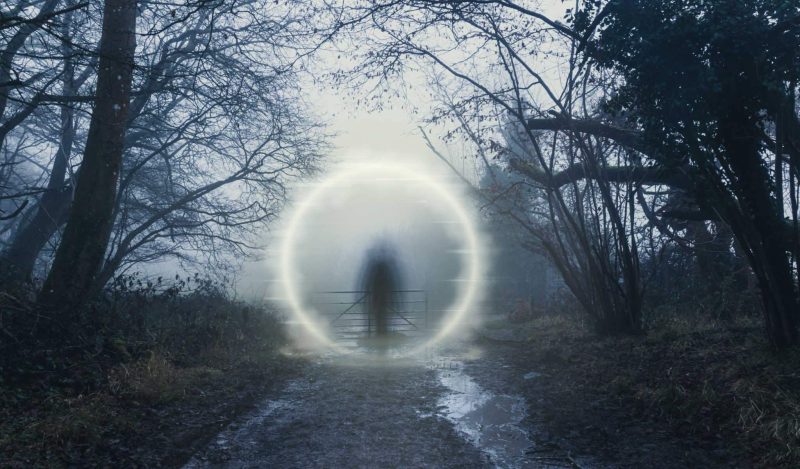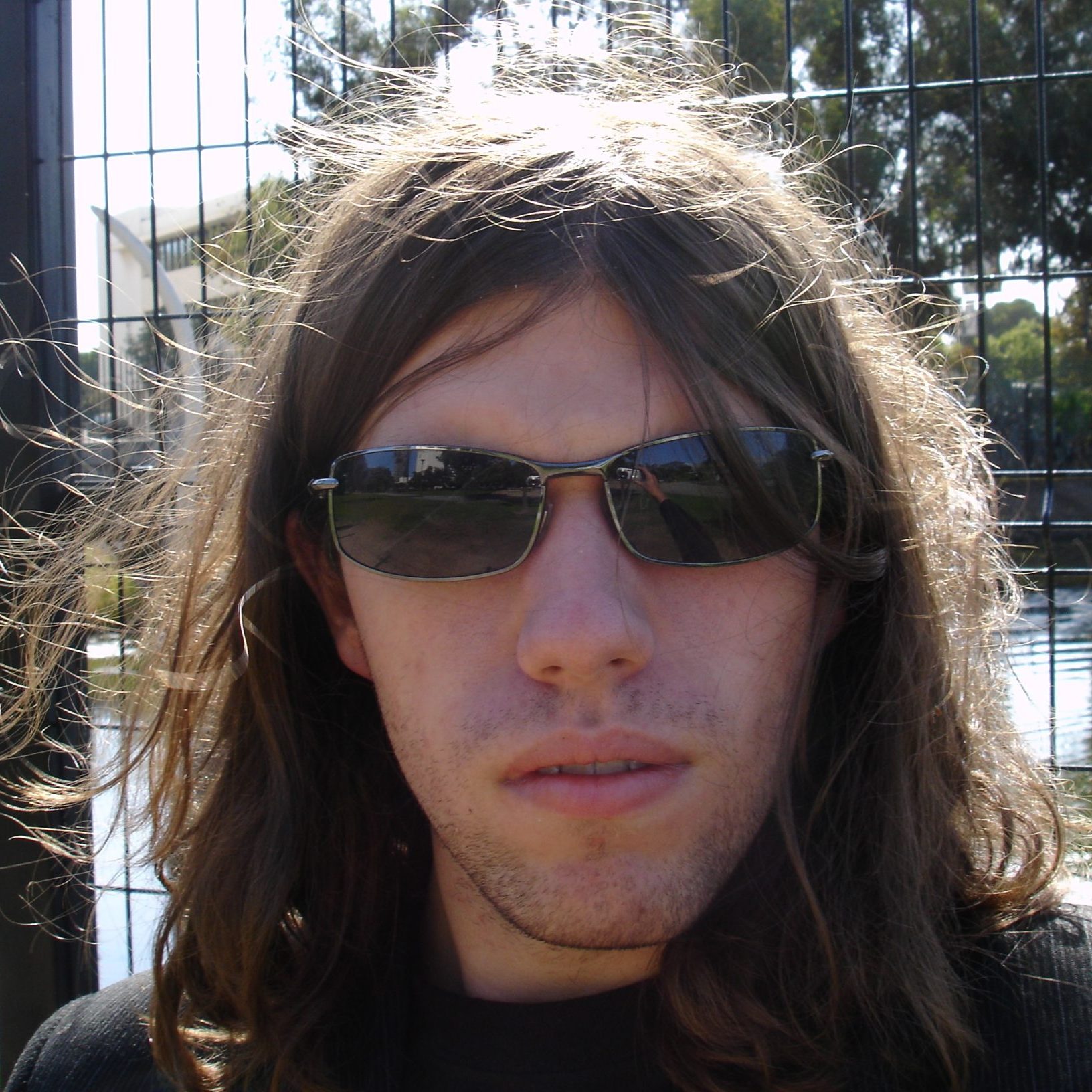For a good portion of college, my psych master’s, and the bit of time in between, I held an intense interest in what had once been labeled “exotic cognitive phenomena.” Loosely speaking, this was a fancy term occasionally used by science journalists in the mid-aughts to describe cognitive phenomena believed to be associated with alleged religious and paranormal experiences. I didn’t actually believe in angels and demons or ghosts and psychics, but found it interesting that so many people reported these kinds of encounters with the unexplained.
Given that so many of them were actually quite explainable with a bit of digging through pop-science books or journal articles on things like temporal lobe epilepsy, hypnagogic hallucinations, and basic quirks of cognitive processing, I also found it equally fascinating that so many people were either unaware of these natural explanations or outright rejected them.
Similarly, I found it mind-boggling that people would reject evolution for theological alternatives. Given the degree of overlap, I also took an interest in the controversies concerning climate change, and the endless list of other scientific matters where people apparently rejected science, although, my mind wasn’t always boggled equally on every issue.
In the days before “elevatorgate,” the event that arguably marked the beginning of the end for the wave of New Atheism that began somewhere in the era of George W. Bush and ended just as snowflake safetyism and wokeness began noticeably to infect every corner of society, infinite shelves of books delved into how people believed what seemed beyond belief, or at least contrary to science, as well as into the related problems and solutions.
Celebrity science communicators at atheist, humanist, and skeptics conventions would expound on them. Local meetup groups would debate the answers over dinner and drinks. And, in the end, despite numerous disagreements on most everything else, most of the time a few basic postulates could be agreed upon.
Education in America sucked. Science education in America especially sucked. If both were better, we wouldn’t be having debates about evolution and climate change. Nor would we have more than a dozen “reality” shows about ghost hunters and psychics. The Republicans made the controversies over evolution and climate change worse. The entertainment industry exacerbated others. But, if only enough people with the right credentials or science bowties or Dawkinsian accents explained basic science to the masses or spurred them to critical thinking, we would emerge from our modern dark age into a new era of enlightenment.
Intuitively, this was all appealing. As time went on though, something about it also seemed simplistic. The biggest problem was, on some level, it assumed that every apparent conflict science had with culture, religion, or politics was the same. The Evangelical who believes in Intelligent Design. The Southerner who drives a gas-guzzling pickup. The kids from Penn State who got their TV show after formally starting a campus ghost-hunting club. They all denied science equally. They were symptoms of the same problem. The problem could be resolved through more education. Possibly with a focus on science education. Maybe critical thinking skills.
What often went unnoticed though, or at least unmentioned, was that there existed seemingly well-educated, highly intelligent, rational people on the other sides of these debates. What also largely went unmentioned was that there are meaningful differences between these various science-and-society-type issues.
Evolution, for example, is a well-supported biological concept backed by more than 150 years of accumulated scientific evidence. For all practical purposes, it is safe to say there is a scientific consensus affirming the validity of evolutionary theory. The concept is foundational to our understanding of modern biology. If it were somehow disproven, our understanding of much of the natural world would crumble. There would be no reason why dogs and cats wouldn’t start living together.
Periodically though, the idea of evolution is publicly challenged due to its seeming incongruence with the theological views of certain Christian denominations stereotypically located in the American South. Scientifically, the arguments of these groups of Christians have no standing. Thus the debate is largely a philosophical one. Should science or religion supersede the other when they are in conflict? Can a compromise be worked out? Is it possible for there to even be a conflict?
The controversy over climate change, however, is different. It’s less philosophical. More about data, models, and policy. Furthermore, it is not a debate over a single topic, but at least a half dozen smaller ones intertwined. Is the Earth getting warmer? Is it our fault? How much warmer will it get? How quickly will this happen? What will the consequences be? What should we do about it?
To say there is a scientific consensus on all these questions always seemed like a bit of a stretch, although plenty of atheists, humanists, skeptics, science communicators and educators, and college-educated non-scientist science enthusiasts surely made the claim.
Moreover, even if one accepts that the earth is getting warmer and it is at least partially our fault, the predictions of a particular model never seemed as foundational as the theory of evolution. If the consequences of climate change were shown to be less severe than anticipated by a particular model, there was never a reason to believe this would fundamentally shake any part of our basic scientific view of the world. In such an event, the cohabitation of dogs and cats would still remain unlikely.
Why Intelligent People Believe Weird Things
Upon entering my psych program, one of my goals was to attempt to make sense of some of this. Why the controversies over evolution and climate were so often treated the same despite only the most superficial overlap was a bit beyond the scope of a project for a first-year master’s student.
Others, however, seemed within reach. Why do people believe weird things? Why do smart people believe weird things? Why do some people reject science?
Narrowly, I ended up studying how paranormal belief influences one’s evaluation of and memory for scientific content pertaining to the paranormal. To be clear, I wasn’t Peter Venkman holding up cards with wavy lines testing the psychic abilities of college girls – at least not on campus. On campus, I was giving them short texts and surveys to determine how their beliefs about psychic abilities influenced what they thought of and remembered about supposed reports of psychic abilities.
More broadly, I was also reading up on topics like scientific reasoning and critical thinking abilities. Vaguely, I remember loosely hypothesizing a certain subsegment of the population naturally might be better at these skills. Those with a greater capacity for these abilities, I presumed, would be less likely to believe weird things. The educational literature that focused on this seemed to imply that these types of reasoning and thinking skills could be taught. Thus, it seemed reasonable, that if enough science teachers could teach enough children and young adults to scientifically reason and critically think better, we would emerge from our modern dark age in a generation.
Rarely in this body of research though was there any real attempt to explain why there are intelligent people who seem to reject science. Seldom was there discussion of potential differences between politicized scientific issues.
The work that addressed at least the first of these matters more satisfyingly, instead, usually pertained to cognitive biases. Specifically, motivated reasoning and biased assimilation.
The basic summary is that people experience some level of emotional distress upon encountering belief-incongruent information. They evaluate it more critically. And they will generally interpret ambiguous or random data in a manner that confirms what they already believe.
Additionally, a growing body of research I came upon just as I was completing my degree clearly and repeatedly demonstrated people’s beliefs about culturally relevant scientific topics are largely unrelated to their semantic knowledge or any specific reasoning abilities. Instead, they are influenced by one’s cultural identity, sometimes best described in terms of one’s religious or political affiliations.
Thus, a Creationist and random believer in evolution are as likely to have the same level of knowledge about evolutionary theory. A climate radical and a climate skeptic are as likely to have the same level of knowledge about actual climate science. All of them are as likely to possess basic knowledge of the makeup of an atom. All of them are as likely to answer a question correctly regarding the likelihood they’ll get tails on a coin toss if the last four tosses had come up heads.
This presented obvious problems for anyone who sought to educate society out of any kind of dark age, at least as it relates to some issues. But it did provide some of the insight I was looking for on the question of intelligent people believing weird things or rejecting science.
A book by Jonah Goldberg, The Tyranny of Cliches, provided the rest, showing that people can accept the same facts, but disagree over policy due to differences in values. Even if two people accept evolution as factual, they may disagree over if and to whom it should be taught or about whether theological alternatives should be dismissed or ignored. Even if two people accept that humans are responsible for climate change, they may still disagree over whether to force a switch to electric vehicles or ban private car ownership.
As for the education issue, some work has definitely shown debunking paranormal claims or directly addressing that such beliefs in the classroom can potentially reduce paranormal belief. Presumably, here, there may be actual deficits in knowledge regarding how many of these unsolved mysteries are quite solved. For most people, there’s also probably little personal or cultural identification with ghost hunting, mind reading, or talking to the dead.
Yet, when the conflicts between science and popular belief are more politicized with factions formed along meaningful cultural lines, presenting people with better arguments or more information will only go so far.
In such instances, with varying degrees of empirical support, the science communication literature recommends finding ways to depoliticize the topics. Using members of a resistant group to deliver information to that group is also a common suggestion, although not without potential drawbacks if it is seen as insincere.
Some science communication researchers and advocates blur the lines between education and indoctrination with discussions of “framing,” focus groups, A/B testing, and tailoring messages to specific audiences.
Sometimes the notion of helping people develop a better understanding of science as a process is also floated, usually with the assumption that if people understood the process better, they would naturally be more likely to come to the right conclusions on matters like evolution and climate change. Then again, this last one could just be a variation on a previously failed theme.
Through the Scientific Looking Glass
Following the completion of my psych degree, I ended up making a jump to biology where my research focused on other things. Although I still cared about why people believe weird things and managed to maintain an ongoing collaboration in that area, it no longer remained my primary focus.
Outside of academia, I also noticed, as time went on, the kinds of controversies in which I was initially interested seemed to subside. It’s been years since I remember hearing of a serious dispute over Creationism being taught in public biology classrooms. Most people other than a handful of elites out of touch with the rest of society and neurotic college girls with emotional support animals and pretend food allergies seemed to forget about climate change. And, although beliefs in ghosts and psychics have probably not changed much in recent years, and although there are likely more paranormal “reality” shows out now than ten years ago, none of them seem to enjoy the popularity of Ghost Hunters and Paranormal State at their respective peaks.
From roughly 2015 through February 2020, it seemed like there was really only one scientific issue contested on any meaningful scale on account of a conflict with broader culture, and it was one I question whether I would have been allowed to formally study even if I was still in a position to do so.
Specifically, a portion of liberals were promoting the idea that human sex and gender are fluid non-binary spectra.
As late as 2015, any biologist familiar with mammalian evolution or development would have denounced this as absurd. Or at least as late as 2015, they still wrote about sex as binary without fear of recrimination even when discussing how human bias influences human understanding of sexual diversity in nature. Yet, eventually fluid human sex and gender spectra somehow became a basic undeniable biological fact because clownfish or something.
Within only a few years, the tribe that had been pulling out their hair over the possibility that there were people in society that would reject basic evolutionary biology in favor of Christian creation stories were rejecting basic developmental biology in favor of fashionable lore from gender studies departments. Some were touting our scientific understanding of how sex and gender had evolved in recent years despite no new scientific discoveries to suggest why it should. Others were retconning our scientific understanding of these matters, claiming science had always affirmed these beliefs. Those who disagreed were blacklisted from academic jobs or chose to self-exile. Collectively, a false consensus was being created.
And then Covid happened and these methods of artificially generating scientific support to legitimize ideology and policy became the norm.
There is no need to repeat the history of the past three years here or rehash every argument of every debate about lockdowns, social distancing, masks, models, and vaccines. It is worth noting though that prior to March 2020 the scientific consensus on these matters was not very promising. Moreover, it did not support the policies ultimately promoted or imposed by the “Follow The Science” crowd.
Lockdowns were considered unproven to be effective at stopping the spread of respiratory viruses and likely to have devastating consequences on societies that imposed them. The science behind social distancing rules was thought to be grossly outdated. The utility of most masks was viewed as limited at best, as was the long-term predictive ability of epidemiological models. The common wisdom about vaccine development was that it was pretty difficult and took at least a decade to do, assuming everything went right.
Yet, at warp speed, the consensus on all of these matters flipped. Arguably, one could cherry-pick a graph to show a decline in Covid cases after social distancing was mandated in a particular area. One could find a mask study or two demonstrating a piece of cloth can serve as a barrier to block some bits of virus. Realistically though, there was no mounting body of evidence to justify this volte-face other than some ill-defined point that science had always supported these measures. Finding a scientist to say otherwise became almost like sitting at a séance and waiting for the spirits to give a sign of their presence.
The retconning had taken place. Those who disagreed with what had now always been the consensus were harrassed, denounced, driven out, censored, and threatened with legal repercussions. Those who continued to deny the consensus were victims of an “infodemic.” They were engaged in “anti-science aggression.” They were “science-deniers.” Sort of like those people who reject evolution or deny climate change. Sort of like those people that don’t understand that humans can just change their sex. You know, like clownfish.
As these debates over Covid policy carried on, discussions of whether the American educational system enables citizens to comprehend basic science returned in a very prominent way. As did more specific conversations about science education and critical thinking. As did appeals to scientific consensuses, manufactured or not, as there was no longer a difference in any practical sense.
The parent who doesn’t want their kid learning about the Genderbread Person. Your uncle who refused to mask between bites at Thanksgiving. They all denied science equally.
This time though, these discussions were more than a chapter in a book for a niche audience. They were more than a seminar at a conference for a particular subculture. They were more than a conversation at a dedicated meetup group after a couple drinks. This time one didn’t have to pore through a stack of articles published in obscure academic journals to find them. This time the discussions were at the forefront of public discourse.
Science communicators who once concerned themselves with learning how to communicate good science to non-scientists and perhaps nudge them to support seemingly science-backed policy, now dropped all pretenses and assumed roles as unofficial volunteer marketing consultants for public health agencies. They wrote think pieces on effective messaging techniques for getting people to accept public health measures as part of their daily lives. They promoted narratives of freedom through obedience on podcasts, talking about how small businesses and salons can open up when people follow the protocols.
Those who concerned themselves with science education elevated convincing people to trust and obey experts on culturally contested scientific matters as one of the goals of science education alongside imparting them with scientific knowledge and teaching the skills necessary to investigate scientific questions. Others suggested that science education needed to go further by instructing students that they can’t just do their own reading and come to their own conclusions on particular topics. Some even developed specific curriculum materials and classes about Covid and medical misinformation to instill the next generation of citizens, scientists, and medical professionals with a respect for and sense of duty towards newly minted scientific dogma – not just about Covid but also matters related to climate and adolescent gender exploration through pharmaceuticals.
In many ways, none of this was really new. Discussions of scientific literacy have been going on for decades. Often they were based on the assumption that if people knew more science they would cease to believe weird things. If they understood science better they would be more supportive of science-informed policy. Sometimes specific classes were even developed to further these goals. The validity of these assumptions may have been called into question. But these were the assumptions.
Along with them, was the general sense that science educators and communicators should educate and communicate. Not indoctrinate. By doing so, the hope was that people would develop their own understanding of various scientific concepts and come to their own conclusions on politicized or culturally contested scientific issues. Preferably the right ones in the eyes of the professionals, but the goal was still to get them to do so in a fairly organic manner.
Certainly the ethics of particular tactics used by science educators and communicators well before Covid can be debated. Yet, one would have to turn to distant examples like the progressive eugenics movement of the early 20th century or the practice of science in Soviet Russia to find an adequate comparison to illustrate the ethos that now exists in science and society surrounding today’s politicized scientific issues.
On these matters, many of those who claim to represent science are no longer objective. Science educators teach orthodoxy. Science communicators openly engage in blatant marketing campaigns. Scientific consensuses are manufactured when needed. All of these components in how scientific knowledge is disseminated and how trust in science is built are now tools to advance and support official policy. All have become ghosts of what they used to be.
Published under a Creative Commons Attribution 4.0 International License
For reprints, please set the canonical link back to the original Brownstone Institute Article and Author.









